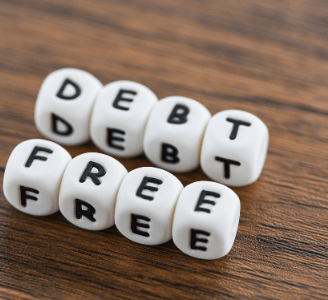Breaking Free: A Comprehensive Guide to Conquering Debt
A Step-by-Step Guide to Conquering Debt and Achieving Financial Freedom.
10/29/20243 min read


Are you tired of living paycheck to paycheck, constantly dreading the arrival of your credit card bills? Do you feel trapped by a mountain of debt, unsure of how to climb out? You're not alone. Millions of people around the world struggle with debt, but it's important to remember that it's a problem that can be solved.
Understanding the Debt Problem
Before we dive into solutions, let's first understand the root causes of debt. While there are various reasons people fall into debt, some common culprits include:
Impulsive Spending: Making unnecessary purchases without considering the long-term financial consequences.
Lifestyle Inflation: Increasing your spending to match your income, leading to a lifestyle you can't afford.
Emergency Expenses: Unexpected costs, such as medical bills or car repairs, can quickly drain your savings.
High-Interest Debt: Credit card debt, payday loans, and other high-interest loans can quickly accumulate, making it difficult to pay off.
Taking Control: A Step-by-Step Guide
Now that we've identified the problem, let's explore practical strategies to overcome it.
1. Face Your Finances Head-On
The first step to conquering debt is to acknowledge the problem and face your finances head-on. Gather all your financial documents, including bank statements, credit card bills, and loan statements. This will give you a clear picture of your financial situation.
2. Create a Realistic Budget
A budget is a powerful tool to help you track your income and expenses. Start by listing all your sources of income, such as your salary, side hustle earnings, and any other income streams. Next, categorize your expenses into fixed costs (e.g., rent, utilities) and variable costs (e.g., groceries, entertainment).
3. Prioritize Your Debts
Not all debts are created equal. Some debts, like credit card debt, often come with high-interest rates. Prioritize paying off these high-interest debts first. Consider using the debt snowball or debt avalanche method to strategize your debt repayment.
Debt Snowball Method: Pay off the smallest debt first, then move on to the next smallest, and so on. This method can provide a sense of accomplishment and motivation.
Debt Avalanche Method: Pay off the debt with the highest interest rate first, then move on to the next highest. This method can save you money in the long run.
4. Increase Your Income
To accelerate your debt repayment journey, consider increasing your income. This could involve taking on a side hustle, negotiating a raise, or selling unwanted possessions.
5. Reduce Your Expenses
Cutting back on unnecessary expenses can free up more money to allocate towards debt repayment. Review your budget and identify areas where you can cut costs. This might include:
Eating out less: Cook at home more often.
Reducing entertainment expenses: Limit your spending on movies, concerts, and other leisure activities.
Lowering utility costs: Conserve energy by turning off lights and appliances when not in use.
Negotiating bills: Contact your service providers (e.g., cable, internet) to negotiate lower rates.
6. Seek Professional Help
If you're struggling to manage your debt on your own, consider seeking professional help from a credit counselor or financial advisor. They can provide personalized advice and guidance to help you get back on track.
7. Stay Motivated and Patient
Conquering debt is a journey, not a sprint. It takes time, patience, and perseverance. Celebrate small victories along the way, and don't get discouraged by setbacks. Stay focused on your long-term goals, and you will eventually achieve financial freedom.
Additional Tips for Debt Repayment
Automate Your Payments: Set up automatic payments for your debts to ensure timely payments and avoid late fees.
Avoid New Debt: Refrain from taking on new debt while you're working to pay off your existing debt.
Build an Emergency Fund: Once you've made significant progress in paying off your debt, start building an emergency fund to cover unexpected expenses.
Practice Self-Care: Taking care of your mental and physical health is crucial during the debt repayment process.
Remember, it's never too late to take control of your finances. By following these steps and staying committed to your goals, you can break free from the chains of debt and build a brighter financial future.
